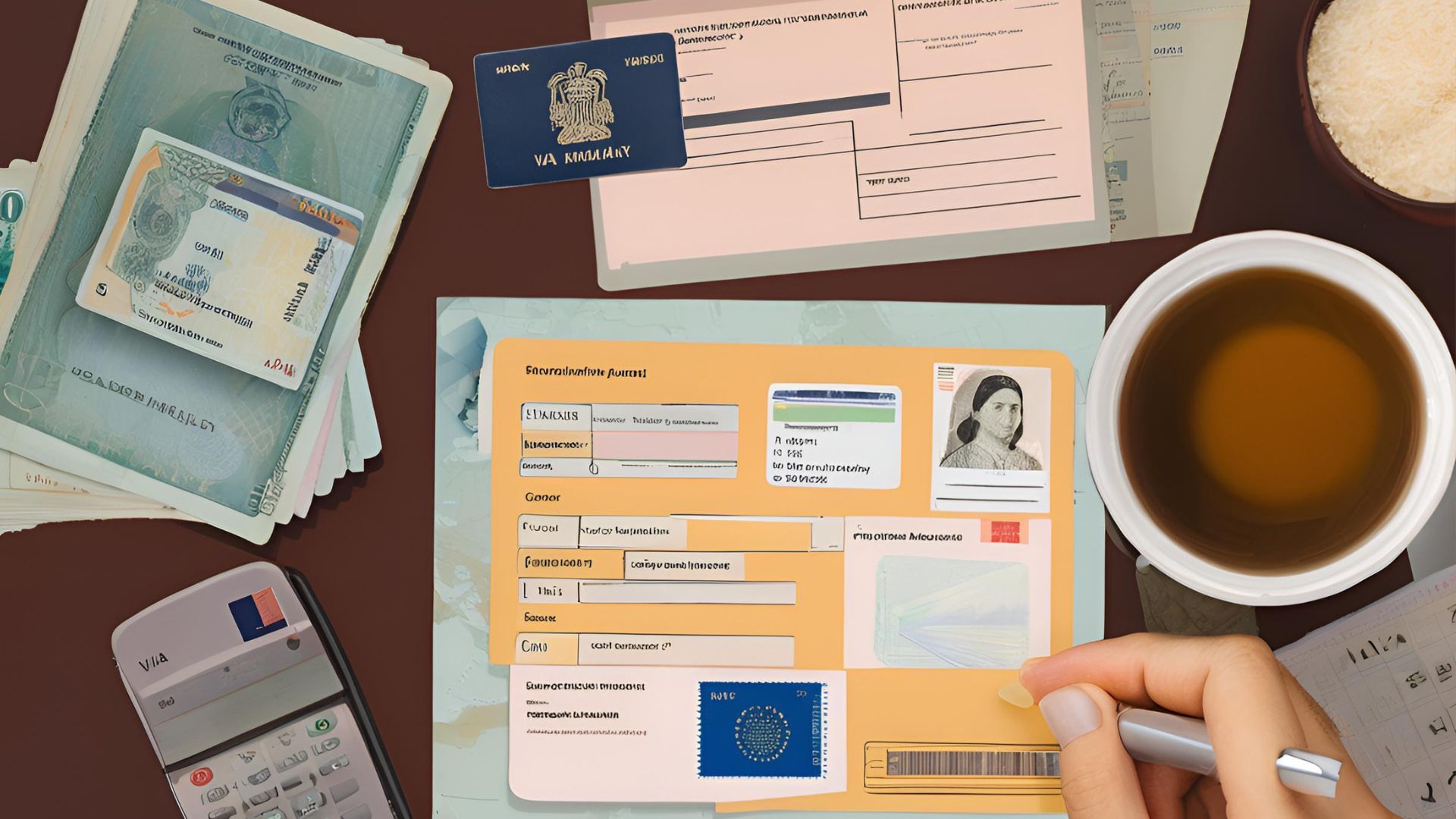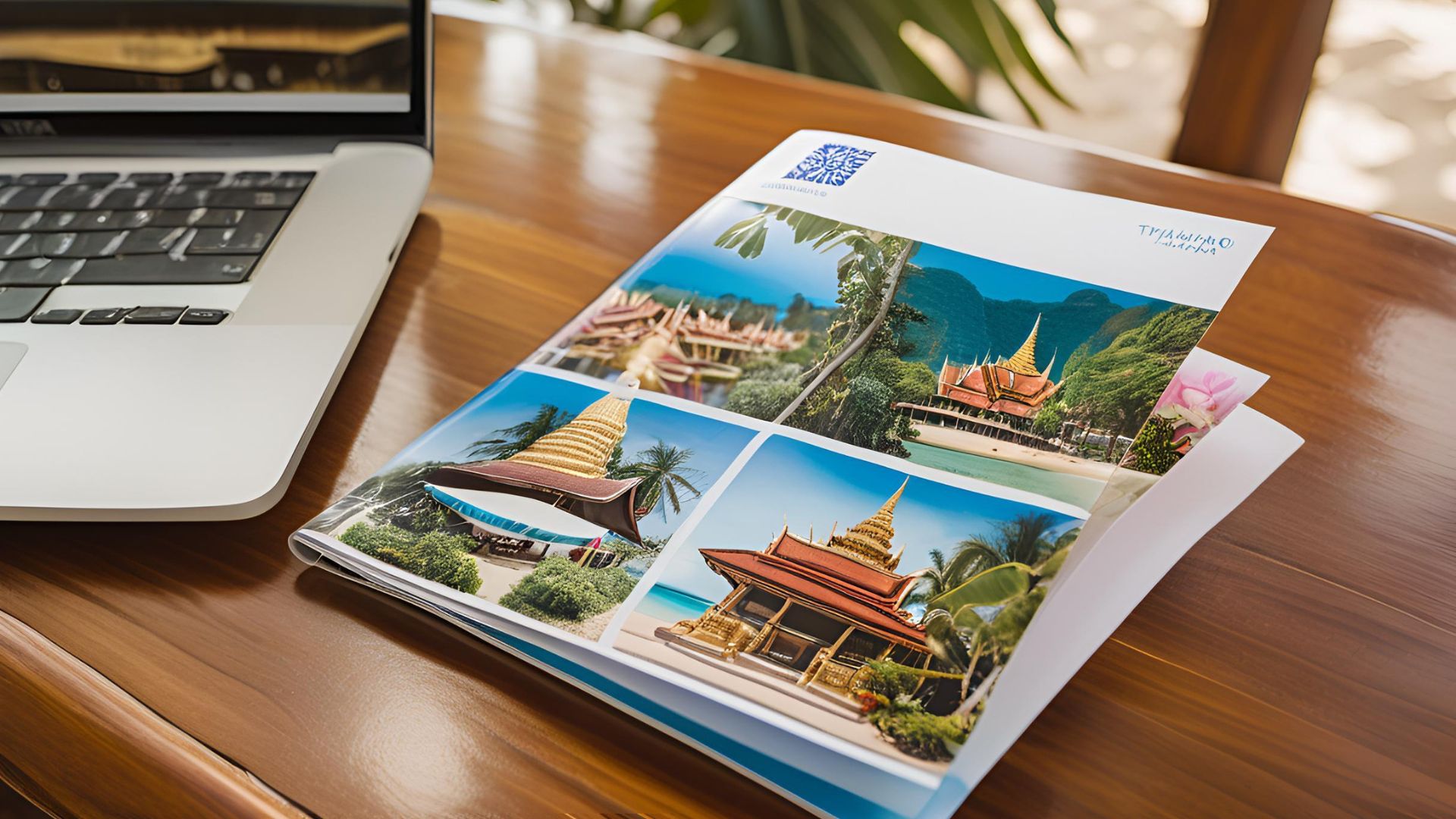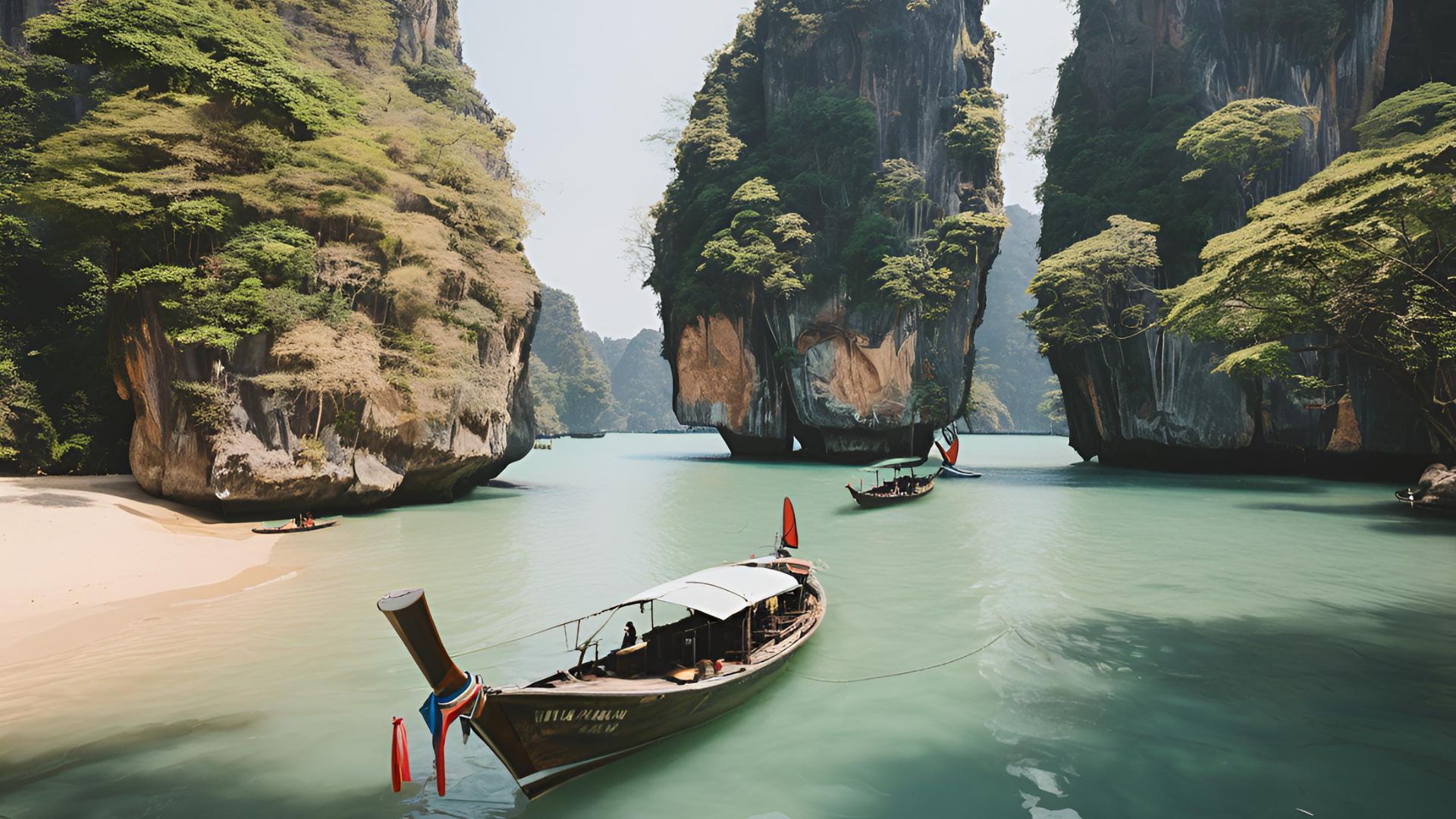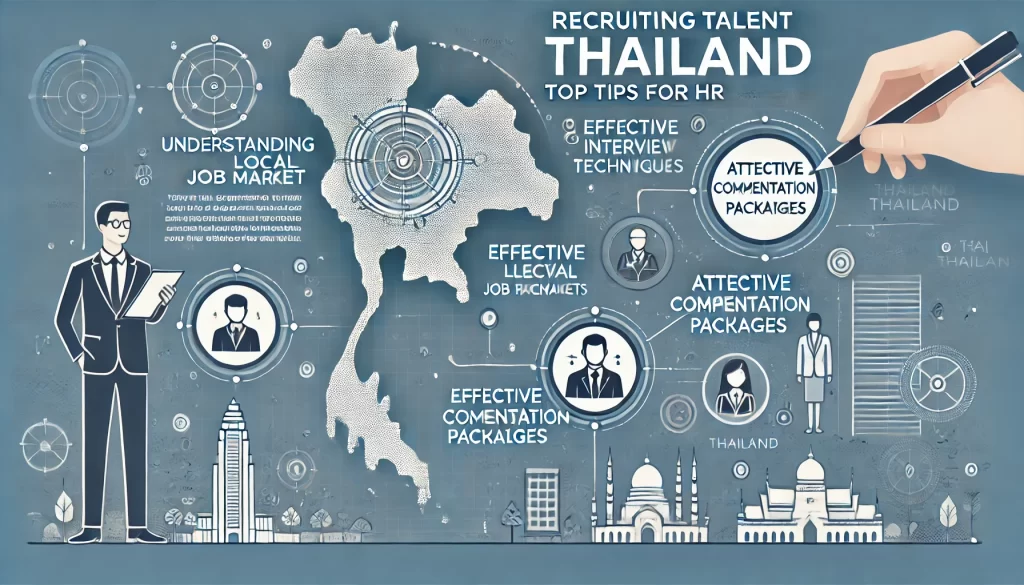Are you struggling to find top-tier talent in Thailand? 🇹🇭 As the Thai job market becomes increasingly competitive, HR professionals face unique challenges in attracting and retaining the best candidates. From navigating cultural nuances to understanding local recruitment practices, the process can be daunting.
But fear not! We’ve got you covered with our comprehensive guide to “Recruiting Talent in Thailand: Top Tips for HR Professionals”. Whether you’re a seasoned recruiter or new to the Thai market, this blog post will equip you with the essential strategies to elevate your hiring game. 💼✨
In the following sections, we’ll dive deep into understanding Thailand’s talent landscape, crafting compelling job descriptions, and leveraging local recruitment channels. We’ll also explore the intricacies of legal and visa requirements, share insights on conducting culturally sensitive interviews, and guide you through offering competitive compensation packages. Finally, we’ll reveal the secrets to successful onboarding in the Thai context. Ready to transform your recruitment process? Let’s get started!
Understanding Thailand’s Talent Landscape

A. Key industries and job markets
Thailand’s job market is diverse and dynamic, with several key industries driving economic growth and employment opportunities. Here’s an overview of the most prominent sectors:
| Industry | Key Characteristics |
|---|---|
| Tourism | Largest contributor to GDP, high demand for hospitality professionals |
| Manufacturing | Strong automotive and electronics sectors, need for skilled technicians |
| Agriculture | Traditional sector, evolving with technology, requires both skilled and unskilled labor |
| Digital Economy | Rapidly growing, high demand for IT professionals and digital marketers |
| Healthcare | Expanding medical tourism industry, need for qualified medical staff |
B. Cultural considerations in recruitment
When recruiting in Thailand, it’s crucial to understand and respect local cultural norms:
- Hierarchy and respect for authority are important
- Indirect communication is often preferred over direct confrontation
- Building relationships (known as “guanxi”) is key to successful business interactions
- Face-saving is a crucial concept in Thai culture
C. Educational system and workforce readiness
Thailand’s education system has been evolving to meet the demands of the modern workforce:
- Increasing focus on STEM education
- Growing number of international programs and English-language courses
- Emphasis on vocational training to address skills gaps
However, challenges remain in aligning education with industry needs, making continuous training and development essential for many roles.
D. Expat vs. local talent dynamics
The balance between expat and local talent in Thailand is shifting:
- Government policies encourage hiring of local talent
- Expats often fill senior management and specialized technical roles
- Growing pool of highly qualified local professionals, especially in urban areas
- Increasing trend of Thai professionals with international education and experience returning home
Understanding these dynamics is crucial for developing effective recruitment strategies in Thailand’s evolving job market.
Crafting an Effective Job Description

Highlighting unique aspects of working in Thailand
When crafting a job description for a position in Thailand, it’s crucial to emphasize the unique aspects that make working in the country attractive. Thailand offers a rich cultural experience, a vibrant work environment, and numerous opportunities for personal and professional growth.
| Unique Aspects | Description |
|---|---|
| Work-life balance | Highlight Thailand’s relaxed lifestyle and emphasis on work-life balance |
| Cultural immersion | Showcase opportunities to experience Thai culture and traditions |
| Career advancement | Emphasize rapid growth opportunities in Thailand’s developing economy |
| Cost of living | Mention the relatively low cost of living compared to other countries |
Emphasizing cultural fit and language requirements
Cultural fit is paramount when recruiting in Thailand. Clearly communicate the importance of adaptability and cultural sensitivity in the job description. Additionally, specify language requirements, as proficiency in Thai can be a significant advantage in many roles.
- Highlight the value of cross-cultural communication skills
- Specify required Thai language proficiency levels (if any)
- Mention opportunities for language learning and cultural training
- Emphasize the importance of respect for Thai customs and etiquette
Showcasing company benefits and growth opportunities
To attract top talent, showcase the unique benefits and growth opportunities your company offers. Thai professionals value job security, career development, and a positive work environment.
- List comprehensive health insurance and other attractive benefits
- Highlight professional development programs and training opportunities
- Mention potential for international assignments or travel
- Emphasize company culture and team-building activities
By focusing on these key areas in your job description, you’ll create a compelling narrative that attracts qualified candidates who are well-suited for working in Thailand’s unique business landscape. Next, we’ll explore how to effectively leverage local recruitment channels to reach the right talent pool.
Leveraging Local Recruitment Channels

Popular job boards and websites in Thailand
When recruiting talent in Thailand, it’s crucial to utilize the most popular local job boards and websites. Here are some of the top platforms:
| Platform | Description |
|---|---|
| JobsDB | One of the largest job portals in Thailand |
| JobThai | Focused on Thai-speaking professionals |
| ThaiJobsGov | Specialized in government sector jobs |
| Growing popularity among professionals |
Utilizing social media platforms
Social media plays a significant role in Thai recruitment. Consider these strategies:
- Use Facebook for targeted job ads
- Leverage LinkedIn for professional networking
- Explore Line, Thailand’s most popular messaging app, for job postings
- Create engaging content on Instagram to showcase company culture
Tapping into university career centers
Collaborating with university career centers can be an excellent source of fresh talent:
- Attend job fairs at top Thai universities
- Offer internship programs to students
- Conduct campus recruitment drives
- Partner with alumni associations for referrals
Partnering with local recruitment agencies
Local recruitment agencies can provide valuable insights and access to a wider talent pool:
- Research reputable agencies specializing in your industry
- Establish long-term relationships for ongoing recruitment needs
- Leverage their local knowledge and candidate networks
- Consider agencies with expertise in expat placements if needed
Now that we’ve explored local recruitment channels, let’s move on to understanding the legal and visa requirements for hiring in Thailand.
Navigating Legal and Visa Requirements

Understanding work permit regulations
In Thailand, work permit regulations are stringent and require careful navigation. Foreign workers must obtain a valid work permit before starting employment. Here’s a breakdown of key points:
- Non-Immigrant Visa B: Required before applying for a work permit
- Employer sponsorship: Necessary for work permit application
- Duration: Typically valid for one year, renewable annually
- Occupation restrictions: Some professions are reserved for Thai nationals
| Requirement | Details |
|---|---|
| Application | Submit to Ministry of Labor |
| Processing time | 7-10 working days |
| Documents | Passport, visa, photos, employer letter |
| Fees | Vary based on duration |
Compliance with Thai labor laws
Adhering to Thai labor laws is crucial for both employers and employees. Key areas to focus on include:
- Working hours: Maximum 48 hours per week
- Overtime: Must be voluntary and compensated at 1.5-3 times regular rate
- Holidays: 13 public holidays annually
- Leave: Minimum 6 days of annual leave after one year of service
Managing visa processes for foreign talent
Securing the right visa is essential for foreign workers. The process involves:
- Obtaining a Non-Immigrant Visa B from a Thai embassy or consulate
- Extending the visa at the Immigration Bureau in Thailand
- Reporting to immigration every 90 days
Employers should assist foreign talent with these processes to ensure smooth transitions and legal compliance. It’s advisable to start visa procedures well in advance of the intended employment start date. With these legal and visa requirements in mind, let’s explore how to conduct culturally sensitive interviews to find the right fit for your organization.
Conducting Culturally Sensitive Interviews

Adapting interview styles to Thai culture
When conducting interviews in Thailand, it’s crucial to adapt your approach to align with Thai cultural norms. Thai culture values respect, politeness, and indirect communication. Here are some key points to consider:
- Use a gentle, non-confrontational approach
- Avoid direct criticism or putting candidates on the spot
- Pay attention to non-verbal cues, as Thais often communicate indirectly
- Show respect for hierarchy and seniority
Assessing language proficiency
Language skills are essential for most positions in Thailand. Here’s a table outlining different ways to assess language proficiency:
| Method | Pros | Cons |
|---|---|---|
| Written test | Objective, standardized | May not reflect speaking ability |
| Oral interview | Assesses real-time communication | Subjective, time-consuming |
| Role-play scenarios | Evaluates practical language use | Requires careful preparation |
| Third-party certification | Internationally recognized | Additional cost, may not be job-specific |
Evaluating cultural adaptability
Assessing a candidate’s ability to adapt to Thai culture is crucial for long-term success. Consider the following:
- Ask about previous experiences working with diverse teams
- Present hypothetical scenarios involving cultural differences
- Inquire about their knowledge of Thai customs and etiquette
- Evaluate their flexibility and openness to new ways of working
Incorporating local customs in the interview process
To create a positive impression and demonstrate cultural sensitivity:
- Greet candidates with a “wai” (traditional Thai greeting)
- Offer water or tea at the beginning of the interview
- Use appropriate titles (Khun for both men and women)
- Be mindful of removing shoes if conducting interviews in a more traditional setting
Remember, incorporating these cultural elements shows respect and can help put candidates at ease during the interview process.
Offering Competitive Compensation Packages

Researching local salary benchmarks
To attract top talent in Thailand, it’s crucial to offer competitive compensation packages. Start by researching local salary benchmarks to ensure your offers are in line with market rates. Consider using these resources:
- Industry-specific salary surveys
- Government labor statistics
- Professional networking platforms
- Local recruitment agencies
| Resource Type | Pros | Cons |
|---|---|---|
| Salary surveys | Detailed, industry-specific | Can be costly |
| Government stats | Free, comprehensive | May lag behind market trends |
| Networking platforms | Real-time data | Limited sample size |
| Recruitment agencies | Local expertise | Potential bias towards higher salaries |
Structuring benefits to attract top talent
Beyond salary, Thai professionals value comprehensive benefits packages. Consider offering:
- Health insurance (often extended to family members)
- Annual leave above the legal minimum
- Professional development opportunities
- Flexible working arrangements
Considering cost of living adjustments
Thailand’s cost of living varies significantly between urban and rural areas. Adjust compensation accordingly:
- Higher salaries for Bangkok-based positions
- Housing allowances for expatriate employees
- Transportation benefits for commuters
- Relocation assistance for internal transfers
Integrating performance-based incentives
Motivate and retain top performers with a well-structured incentive system:
- Annual bonuses tied to individual and company performance
- Stock options or profit-sharing schemes
- Non-monetary rewards (e.g., extra vacation days, public recognition)
- Career advancement opportunities linked to performance metrics
By offering a well-rounded compensation package that combines competitive salaries, attractive benefits, and performance incentives, you’ll be well-positioned to recruit and retain the best talent in Thailand’s dynamic job market.
Onboarding for Success in Thailand

Designing culture-specific orientation programs
To ensure a smooth transition for new hires in Thailand, it’s crucial to design orientation programs that address the unique aspects of Thai culture. These programs should cover:
- Thai business etiquette
- Cultural norms and values
- Communication styles
- Hierarchy in the workplace
Here’s a sample structure for a culture-specific orientation program:
| Day | Focus Area | Activities |
|---|---|---|
| 1 | Thai Culture Overview | Cultural awareness workshop, Thai language basics |
| 2 | Business Etiquette | Role-playing exercises, do’s and don’ts in Thai business |
| 3 | Communication Styles | Non-verbal communication training, conflict resolution |
| 4 | Workplace Hierarchy | Understanding organizational structure, respect practices |
Providing language support for expats
Language barriers can significantly impact an expat’s integration and productivity. Offer comprehensive language support through:
- Thai language classes
- Translation services for important documents
- Bilingual mentors or buddies
- Language exchange programs with local colleagues
Facilitating integration into Thai work environment
To help new hires adapt to the Thai work environment:
- Organize team-building activities that incorporate Thai customs
- Encourage participation in local festivals and celebrations
- Provide guidance on dress codes and appropriate workplace behavior
- Arrange cultural immersion experiences outside the office
Implementing mentorship programs
Mentorship programs can greatly enhance the onboarding experience. Consider:
- Pairing new hires with experienced local employees
- Setting clear goals and expectations for the mentorship
- Scheduling regular check-ins to address challenges and progress
- Offering cross-cultural training for mentors
By implementing these strategies, HR professionals can create a comprehensive onboarding process that sets new hires up for success in Thailand’s unique business landscape.
Recruiting top talent in Thailand requires a nuanced approach that blends local cultural understanding with global best practices. By crafting compelling job descriptions, utilizing diverse recruitment channels, and navigating legal requirements, HR professionals can attract the best candidates. Conducting culturally sensitive interviews and offering competitive compensation packages are crucial steps in securing top talent.
To succeed in recruiting in Thailand, HR professionals must prioritize effective onboarding processes that acclimate new hires to both the company culture and local work environment. By implementing these strategies, organizations can build strong, diverse teams that drive success in the Thai market. Remember, investing time and resources into understanding and adapting to Thailand’s unique talent landscape will yield long-term benefits for your company’s growth and success in the region.

